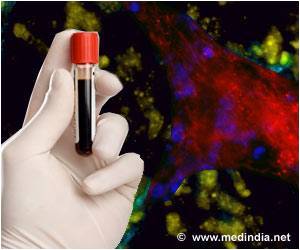Chromatin compaction or DNA compaction is essential for proper embryonic stem cell differentiation to occur, say researchers.
Chromatin compaction or DNA compaction is essential for proper embryonic stem cell differentiation to occur, say researchers. Chromatin, which is composed of histone proteins and DNA, packages DNA into a smaller volume so that it fits inside a cell.
A study published on May 10, 2012 in the journal
PLoS Genetics found that embryonic stem cells lacking several histone H1 subtypes and exhibiting reduced chromatin compaction suffered from impaired differentiation under multiple scenarios and demonstrated inefficiency in silencing genes that must be suppressed to induce differentiation.
"While researchers have observed that embryonic stem cells exhibit a relaxed, open chromatin structure and differentiated cells exhibit a compact chromatin structure, our study is the first to show that this compaction is not a mere consequence of the differentiation process but is instead a necessity for differentiation to proceed normally," said Yuhong Fan, an assistant professor in the Georgia Tech School of Biology.
Source-Eurekalert
















